As we sail into 2024, the dynamics of employer branding are shifting more dramatically than ever before, spurred by technological advancements and a new wave of workplace expectations. In this ever-evolving landscape, businesses are not just competing for visibility but are deeply engaged in a battle for belief—belief in their vision, culture, and the promise of what it means to be part of their community. This article dives into the latest trends and strategic practices that are setting the stage for the future of employer branding, aiming to not only attract but to connect and resonate with the talent of today and tomorrow.
Employer branding now transcends the traditional boundaries of HR and marketing, morphing into a holistic strategy that integrates deep-seated values of diversity, inclusivity, and technological integration. With the workforce increasingly craving authenticity, flexibility, and purpose-driven employment, companies are under significant pressure to adapt and respond. This piece explores how shifts in these areas are not just influencing hiring strategies but are reshaping corporate cultures at their core.
Deep Dive into Trends and PracticesC-Suite Visibility and InvolvementThe role of company leaders in shaping and promoting the employer brand has never been more pivotal. A recent trend sees CEOs and other C-suite executives stepping forward to actively engage in branding efforts, particularly through digital content like videos and podcasts. This visibility not only enhances the authenticity of the brand but also allows potential hires to connect directly with the top brass, fostering a sense of transparency and trust. According to a study, companies with executive presence on social media are perceived as 71% more transparent and trustworthy by prospective employees.
Moreover, when leaders are involved in employer branding, companies see a measurable impact on their ability to attract top talent. The presence of executives on social media is also responsible in attracting high-quality applicants, as it gives a human face to the corporation and builds a leader-centric brand narrative that resonates with job seekers who prioritize transparent and engaging cultures.
Authenticity in CommunicationsIn an era where authenticity is more than a buzzword, companies are striving to align their external image with their internal reality. Authenticity in employer branding means presenting a true picture of what it's like to work at a company, warts and all. This approach resonates particularly well with younger demographics like Millennials and Gen Z, who favor transparency over curated corporate images. Statistics show that 82% of job seekers are more likely to pursue a position at a company whose values are clear and communicated openly.
Employee-generated content plays a crucial role here, as content shared by employees receives 8 times more engagement than content shared by brand channels. By encouraging employees to share their real work-life experiences, companies can enhance the credibility of their employer brand. This strategy not only improves engagement rates but also builds a deeper connection with potential applicants who see real people, not just corporate branding.
Leveraging Technology for EngagementArtificial Intelligence (AI) is transforming employer branding by personalizing the candidate experience at scale. AI can analyze large data sets to tailor branding messages and predict job fit, which significantly enhances the recruitment process. For instance, AI-driven analytics can help companies understand what job seekers look for in an employer, allowing them to adjust their branding strategies accordingly. Companies using AI in recruitment have seen an increase in applicant satisfaction due to more personalized communication and faster response times.
Moreover, AI technologies are employed to streamline the application process and improve candidate screening. This leads to a more efficient hiring process and a better candidate experience, which is vital for building a positive employer brand. A Gartner study found that organizations that effectively utilize AI tools in their HR practices increase their productivity by up to 17% and improve employee engagement by over 38%.
Flexibility and Remote Work OptionsThe demand for flexible work arrangements has skyrocketed, with recent data showing that 80% of workers would choose a job that offers flexible working over one that doesn't. In response, more companies are incorporating remote work options into their employer branding strategies. Companies that offer genuine flexibility are seen as more attractive, as they align with modern lifestyle preferences, promoting a healthier work-life balance.
This trend is reinforced by studies indicating that flexible working not only increases employee satisfaction but also boosts productivity. Companies that have successfully implemented flexible working policies show a significant reduction in employee turnover rate, and job postings that mention flexibility receive 30% more applications than those that do not.
Commitment to Diversity and InclusionDiversity, equity, inclusion, and belonging (DEIB) are at the forefront of modern employer branding strategies. With societal shifts towards greater equality, companies are finding that a strong commitment to DEIB is not just ethical but also beneficial to their bottom line. Diverse companies are 35% more likely to outperform their less diverse counterparts in terms of profitability.
Moreover, a commitment to diversity affects employer branding by attracting a wider range of candidates. A survey by Deloitte revealed that 67% of job seekers consider diversity as an important factor when considering offers. Hence, companies that showcase their commitment to a diverse and inclusive workplace are more likely to attract top talent from various backgrounds, enhancing creativity and innovation within their teams.
As we look ahead, the trajectory for employer branding is clear—more personalized, more integrated, and more aligned with the evolving expectations of the workforce. Companies willing to invest in these areas, genuinely incorporating these elements into their operational and strategic blueprints, will not only thrive in attracting top talent but in fostering a loyal and productive workforce.
Ready to take your company’s hiring to the next level? Let’s talk!

